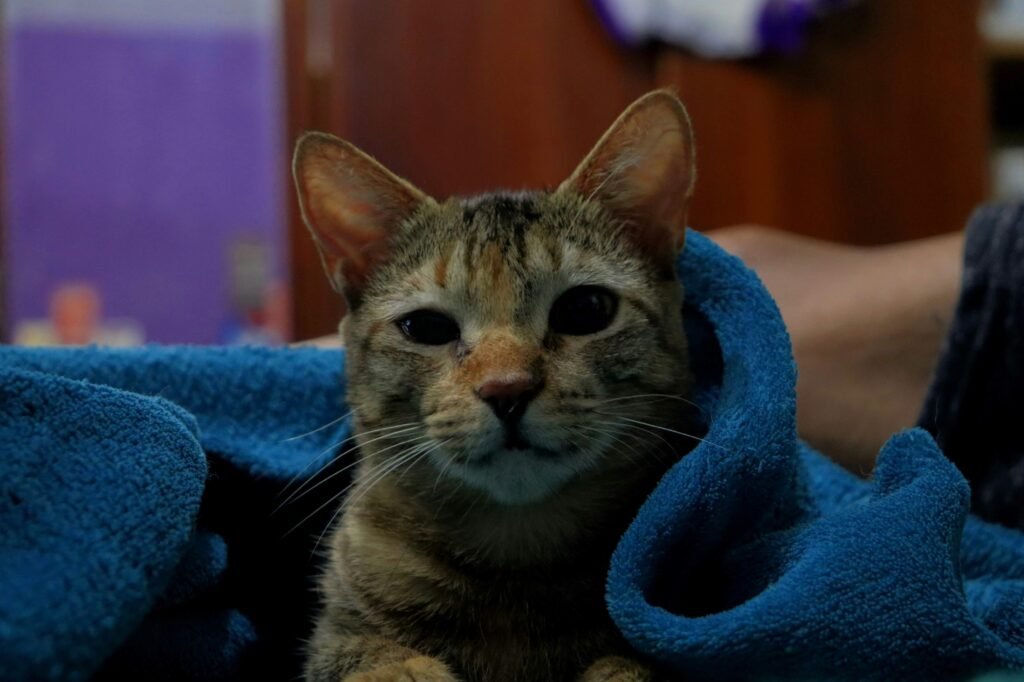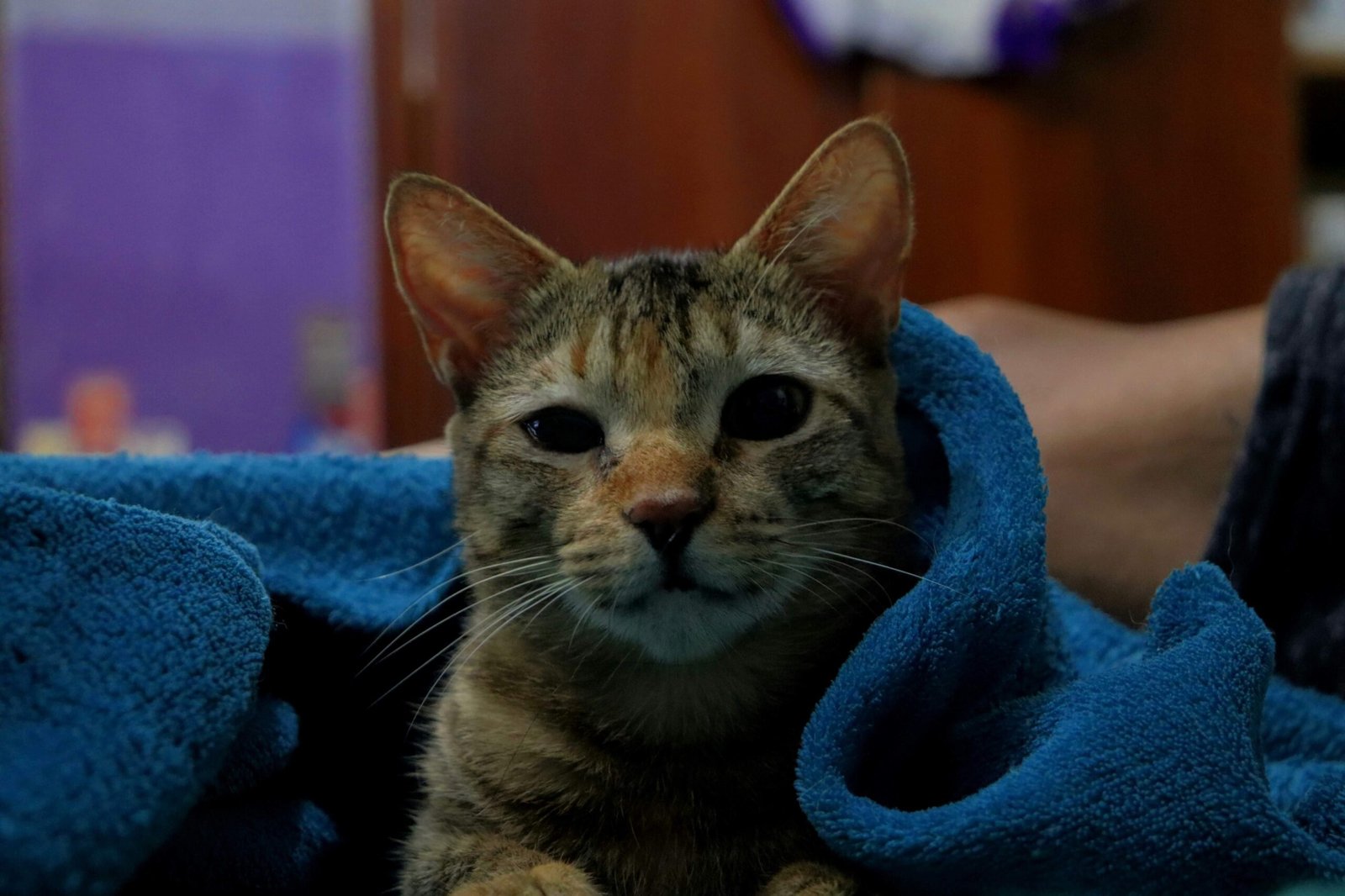Why Does My Cat Lay on My Stomach? Understanding the Feline Bond
Have you ever found yourself wondering why your furry friend insists on curling up right on top of your stomach? It’s a question many cat owners ask, and the answer is as heartwarming as it is fascinating. Cats are mysterious creatures by nature, but their behavior often reveals deep emotional connections and instincts that tie them to their human companions. Whether it’s for warmth, comfort, or simply because they adore you, there’s more to this adorable habit than meets the eye. Let’s dive into the reasons behind this endearing feline behavior.
The Comfort Connection: Why Cats Love Your Warmth
Cats are naturally drawn to warmth, and your body provides the perfect source of cozy comfort. Here’s why your stomach might be their favorite spot:
Body Heat: Cats are drawn to areas of your body that radiate warmth, such as your stomach. This instinct harks back to their days as wild animals, where staying warm was essential for survival.
Soft Surface: Your stomach offers a soft, cushioned area that feels inviting to your cat. It’s like their own personal bed made just for them.
Proximity to You: By laying on your stomach, your cat is as close to you as possible. This closeness strengthens the bond between you and provides them with a sense of security.
Relaxation Zone: The rhythmic rise and fall of your breathing can have a calming effect on your cat, making your stomach an ideal spot for relaxation.
Marking Territory: Cats use scent glands located on their paws and face to mark their territory. By laying on you, they’re subtly claiming you as part of their domain.
In summary, your stomach is a warm, safe haven for your cat, offering everything they need to feel content and secure.
Instincts at Play: Tracing Back to Their Ancestral Roots
Understanding your cat’s behavior requires a glimpse into their evolutionary past. Here’s how their instincts influence their choice of lounging spots:
Survival Instincts: In the wild, cats seek out elevated or enclosed spaces to rest. Your stomach mimics these safe zones, giving them a sense of protection.
Pack Mentality: While domestic cats are often seen as solitary animals, their ancestors lived in groups. Laying on your stomach replicates the feeling of being close to their “pack.”
Hunting Rest Periods: After hunting, wild cats often rest in safe, warm spots. Your stomach serves as a modern-day equivalent, allowing them to recharge in comfort.
Vulnerability Trust: Cats are naturally cautious creatures. By choosing to lay on your stomach, they’re showing immense trust in you, knowing they’re safe in your presence.
Energy Conservation: Cats are masters of conserving energy. Your warm stomach helps them maintain their body temperature without expending extra energy.
These instincts explain why your cat finds your stomach so irresistible, blending ancient behaviors with modern-day affection.
Check this guide 👉Why Cats Love to Lay Down: Best 7 Expert Tips!
Check this guide 👉Why Does My Cat Sleep on My Pillow? Best 7 Behavior Tips!
Check this guide 👉Why Do Cats Love Sleeping Above Our Heads? Best 7 Tips!

Reasons Cats Lay on Your Stomach | Benefits for Your Cat |
|---|---|
Warmth and comfort | Regulates body temperature |
Proximity to their owner | Strengthens emotional bond |
Marking territory | Reinforces ownership and security |
Calming effect of your breathing | Promotes relaxation and reduces stress |
Safe and enclosed space | Provides a sense of protection |
Emotional Bonds: Strengthening the Human-Feline Relationship
The act of your cat laying on your stomach goes beyond physical comfort—it’s also deeply emotional. Here’s how this behavior strengthens your bond:
Affection Display: Cats show love in subtle ways, and laying on your stomach is one of them. It’s their way of saying, “I trust and care about you.”
Companionship: Cats are social creatures, despite their independent reputation. Being close to you fulfills their need for companionship.
Routine Building: Cats thrive on routine, and if they’ve associated your stomach with comfort, they’ll return to it time and again.
Stress Relief: Physical closeness releases oxytocin, the “love hormone,” in both humans and cats. This mutual benefit enhances your relationship.
Mutual Relaxation: When your cat relaxes on your stomach, it encourages you to unwind as well, creating a shared moment of peace.
This behavior is a testament to the special connection you share with your cat, built on trust and love.
Health and Behavioral Insights: What This Behavior Tells You
Your cat’s preference for your stomach can also provide insights into their health and personality. Here’s what to consider:
Temperature Regulation: If your cat frequently seeks out warm spots, it could indicate they’re struggling to maintain their body temperature.
Security Needs: A cat that prefers your stomach might be seeking reassurance during times of stress or change.
Personality Traits: Some cats are naturally more affectionate or clingy, making them more likely to lay on you.
Age Factor: Older cats may seek warmth more often due to decreased mobility or health issues.
Behavioral Changes: Sudden changes in this behavior could signal underlying health concerns or discomfort.
By observing these patterns, you can better understand your cat’s needs and ensure they’re happy and healthy.
Signs of Affection Beyond Stomach Lounging
Cats express affection in a variety of ways, and their choice to lay on your stomach is just one example. Here are other behaviors that highlight their love for you:
Head Butting: When your cat bumps their head against you, they’re marking you as part of their family and showing trust.
Slow Blinking: A slow blink from your cat is like a “kiss” in feline language, signaling that they feel safe with you.
Purring: While purring can indicate contentment, it’s also a way for cats to communicate their bond with you.
Following You Around: If your cat trails behind you wherever you go, it’s a sign they enjoy your company and seek your attention.
Grooming You: Licking your hand or face might seem odd, but it’s a gesture of care and affection.
These actions reveal the depth of your cat’s attachment to you, proving that their love extends far beyond their favorite lounging spot.
Health Benefits of Cat Companionship
Having a cat lay on your stomach isn’t just comforting—it also offers surprising health benefits for both you and your pet. Here’s how this bond positively impacts well-being:
Stress Reduction: The act of petting your cat releases endorphins, which help reduce stress and anxiety levels.
Lower Blood Pressure: Studies show that owning a cat can contribute to lower blood pressure and improved cardiovascular health.
Improved Mood: Interacting with your cat triggers the release of serotonin and dopamine, boosting your overall mood.
Better Sleep Quality: Cats’ rhythmic purring has a calming effect, which can help you fall asleep faster and stay asleep longer.
Emotional Support: Cats provide companionship, reducing feelings of loneliness and promoting mental well-being.
The mutual benefits of this relationship underscore the importance of nurturing your bond with your feline friend.
Tips for Enhancing Your Bond with Your Cat
If you want to strengthen the connection with your cat, there are simple steps you can take to make them feel even more loved. Here are some tips:
Create a Cozy Environment: Provide soft blankets or cushions where your cat can relax comfortably near you.
Engage in Playtime: Use interactive toys like feather wands or laser pointers to spend quality time together and build trust.
Respect Their Space: Allow your cat to approach you on their terms, ensuring they feel safe and in control.
Offer Treats and Rewards: Positive reinforcement through treats or praise encourages bonding and good behavior.
Talk to Your Cat: Speaking softly to your cat helps them recognize your voice and feel more connected to you.
By incorporating these practices into your daily routine, you’ll deepen the trust and affection between you and your furry companion, creating an even stronger bond.
Frequently Asked Questions About Cats Laying on Your Stomach
Is it normal for my cat to lay on my stomach?
Yes, it’s completely normal and often a sign of affection and trust.
Should I be concerned if my cat suddenly stops laying on me?
It could indicate stress, illness, or environmental changes. Monitor their behavior closely.
Can this behavior cause any harm to me or my cat?
Generally, no. However, if your cat kneads aggressively, it might cause discomfort.
Why does my cat purr while laying on my stomach?
Purring is a sign of contentment and relaxation, showing they feel safe with you.
How can I encourage my cat to lay on my stomach?
Create a warm, inviting space and spend quality time bonding with them.
A Bond Like No Other: Cherishing the Moments with Your Cat
The simple act of your cat laying on your stomach speaks volumes about the unique bond you share. From warmth and comfort to trust and affection, this behavior reflects the deep connection between you and your feline companion. By understanding their instincts and needs, you can nurture this relationship even further. So, the next time your cat curls up on your stomach, take a moment to appreciate the love and trust they’re sharing with you. After all, these small moments are what make life with a cat so incredibly rewarding.
Do Cats Have Taste Buds? Best 7 Expert Tips! – Discover how cats experience flavors and why their taste is so unique.
Do Dogs Have Taste Buds? Best 7 Expert Tips! – Discover how dogs experience taste, their preferences, and what it means for their diet and health.
Can Cats Taste Sweet? Best 7 Expert Tips! – Discover why cats can’t taste sweetness, how it affects their diet, and tips to keep them healthy and happy.
Can Dogs Taste Sweet? Best 7 Expert Tips! – Discover how dogs perceive sweetness, which foods are safe, and tips to manage their sweet cravings responsibly.





